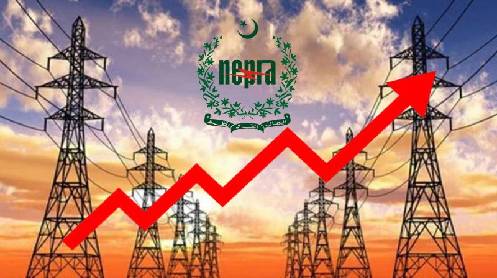ISLAMABAD: The federal government Tuesday night notified an increase in the base tariff by Rs3-7.50 per unit of electricity for the FY2023-24.
The National Electric Power Regulatory Authority (Nepra) uploaded the much-awaited decision on an increase in the base tariff after hearing a motion submitted by the government seeking an average uniform tariff for every category of consumers across the country, including the K-Electric consumers. The power regulator held the hearing on Monday.
The increase has been notified under the $3 billion SBA IMF loan programme. The government, after extending the Rs322 billion subsidy, has set the average base tariff increase at Rs3.82 per unit instead of Rs4.96 per unit for all residential consumers.
Out of the Rs322 billion subsidy, the government has extended Rs172 billion to K-Electric consumers and Rs150 billion for DISCOs consumers. The new tariffs will be effective from July 1. The regulator approved the same increase in base tariff of Rs3-7.50 per unit that the federal cabinet had approved. The Nepra has finalized the end tariff without the inclusion of monthly FPA, ongoing QTA, surcharges, taxes, and duties.
However, Member Technical Nepra Rafique Ahmad Shaikh in his additional note came down heavily on the government arguing that the subsidy to different categories of consumers from the taxpayers’ amount was no solution, rather the real solution lay in enhancing the efficiency of the sector instead of passing the inefficiencies on to the consumers.
The additional note mentions that there is a roadmap on how to improve the power sector by eliminating inefficiencies in the sector such as GENCOs, various hydropower plants of Wapda, NTDC, DISCOs, System Operator, power purchase, and others. He also mentioned that the Nepra operating under its regulatory framework had been diligently working to improve these inefficiencies and it was high time for all stakeholders to sit together and decide on the inefficiency of DISCOs, NTDC and GENCOs.
As per the uploaded decision, the lifeline and protected consumers will have an unchanged tariff. The consumers using 50 units a month will have a tariff of Rs6.76 per unit and those falling in the category of 51-100 units will have a tariff of Rs11.41 per unit. The protected consumers using the 100 units will pay a tariff of Rs13.51 per unit and those falling in the bracket of 101-220 units will pay Rs15.78 per unit. The government says that 63.5% of the total domestic consumers will be facing no increase in the tariff. However, four categories of non-protected consumers which are 31.5 percent of domestic consumers will face an increase in the tariff by Rs 3-6.50 per unit.
The detail shows that the non-protected consumers who fall in the bracket of 01-100 units will pay Rs22.52 per unit, and the ones who come in the slab of 101-200 units a month will pay the tariff of Rs27.16 per unit. The consumers who stay in the slab of 201-300 units will face Rs30 per unit and those who fall in the category of 301-400 units will pay the tariff of Rs33.04 per unit.
However, the middle class and high-end consumers will pay huge cross-subsidy to the lifeline, protected, and four categories of unprotected consumers. The middle-class consumers falling in the bracket of 401-500 units will pay Rs35.36 per unit and the ones who fall in the bracket of 401-500 will pay Rs36.50 per unit. The higher-end consumers falling in the 501-600 brackets will pay Rs37.90 per unit and the consumers who fall in the bracket of 601-700 units will pay Rs37.90 per unit. Consumers who use more than 700 units a month will pay Rs42.95 per unit.
However, the Nepra has fixed the new tariff of the ToU meters residential consumers during peak hours at Rs38.54 per unit and during off-peak hours at Rs32.25 per unit. The tariff for temporary supply has been set at Rs37.89 per unit.
However, for K-Electric consumers, ToU consumers will have a peak hours tariff of Rs41.89 per unit and off-peak hours at Rs35.57 per unit. And for peak load requirements less than 5kW, the commercial consumers’ tariff using ToU during peak will pay Rs37.37 per unit, and for load exceeding more than 5kw will pay Rs39.73 per unit during peak hour. The regular commercial consumers using ToU meters during peak hours will pay Rs40.18 per unit and during off-peak hours will pay Rs34.25 per unit and the tariff of the electric vehicle charging stations at Rs37.10 per unit.
Industrial consumers B1 will be having a new tariff of Rs37.47 per unit during peak hours and Rs31.80 per unit during off-peak hours. B2 consumers will have a peak hour tariff of Rs37.20 and an off-peak tariff of Rs31.40 per unit, B3 consumers will have a peak hour tariff of Rs36.41 per unit and an off-peak tariff of Rs 30.84 per unit and B4 consumers will pay Rs36.38 per unit and off-peak tariff at Rs30.20 per unit.
Agriculture SCARP consumers will have a peak hours tariff of Rs37.73 per unit and off-peak hours at Rs46.80 per unit and agriculture tube well peak hour tariff has been set at Rs24.68 per unit and off-peak rates at Rs24.58 per unit.







